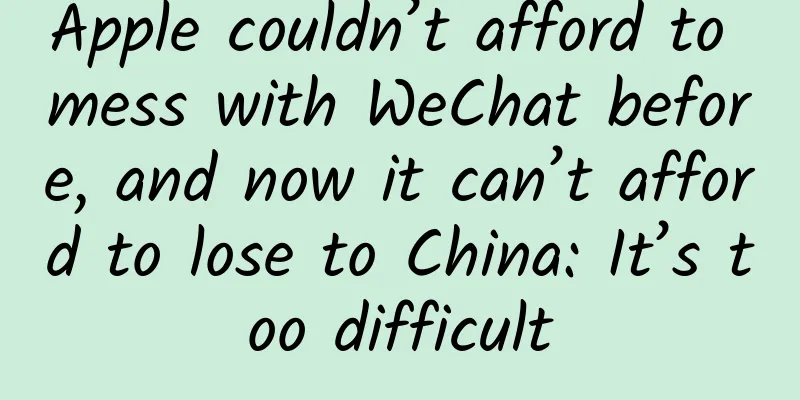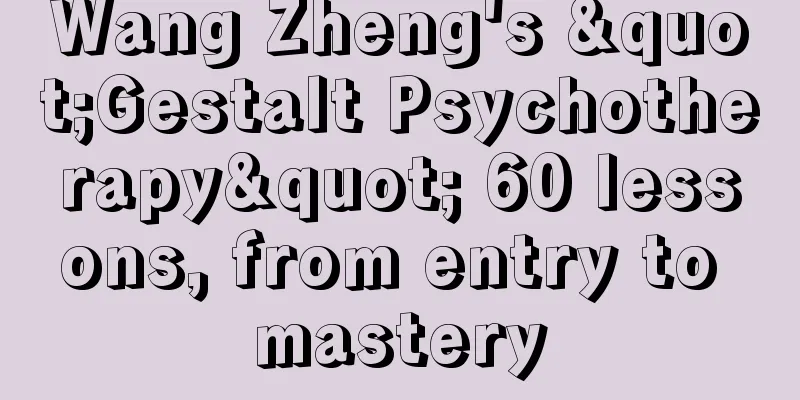Apple couldn’t afford to mess with WeChat before, and now it can’t afford to lose to China: It’s too difficult

|
The choice between WeChat and Apple has become a hot topic on the Internet recently. This incident originated from the latest WeChat ban, which puts Apple and the market prospects of the iPhone in a dilemma. In fact, before this, the game between Apple and WeChat had continued for many years. Apple once "couldn't afford to offend" WeChat, and now it "can't afford to lose" the Chinese market. It's really difficult. Apple once gave up its principles for the Chinese market and WeChat. This is not what I said, but what Philip Shoemaker, who was in charge of Apple's App Store until 2016, said. In his opinion, WeChat was once a "destroyer" of the IOS ecological rules, and the reason why WeChat still exists in the Apple App Store is due to Apple's concerns and compromises regarding the Chinese market. The target of WeChat's rule-breaking is the "WeChat Mini Program" that was just launched. The former Apple executive commented on the matter: "You cannot embed an app within an app. This is a basic principle of the Apple App Store. Only WeChat is allowed to do this." The executive had repeatedly advised WeChat not to do this, but he failed. So as we can see now, WeChat mini-programs are everywhere, and WeChat covers almost every application scenario in people’s lives, and the five basic needs of food, clothing, housing, transportation and payment have basically been fully penetrated. Even a brand new mobile phone with only one WeChat app installed can meet most of the needs of daily life. This is convenient for users to a certain extent, but it also makes the IOS ecosystem chaotic, and Apple is worried about this. The game between Apple and WeChat has been going on for a long time, and it can be summed up as the increasingly large WeChat ecosystem and the violation of the principle of fairness of IOS. For Apple, WeChat's dominance is definitely not a good thing. But they knew that if WeChat could not be installed on iPhones sold in China, the iPhone would not sell well. This made the former Apple executive extremely angry, but he could do nothing about it. US President Trump recently signed an order targeting WeChat. Under the ban, US companies will be banned from doing business with WeChat next month. The scope of the order is unclear, which makes it uncertain whether Apple needs to remove WeChat from its app store. However, the storm of public opinion has already put Apple at the forefront of the storm, and it is caught in a dilemma. It's not just WeChat, Apple has been compromising for the Chinese market.
Including Cloud Guizhou many years ago, and Beidou Navigation, which Apple will soon fully support, both show that Apple is making active coordination for the big cake of the Chinese market. The fact that Apple has joined forces with a group of American companies to persuade Trump to lift the ban on WeChat can be said to be more telling, because Apple really cannot afford to lose in the face of China's huge market. According to research data released by IDC in the first half of this year, as of the end of 2019, the proportion of iPhone users in the Chinese market reached 18.9%. Data from iiMedia research firm shows that the number of mobile phone users in China in 2019 was 1.0868 billion. Through simple calculations, it is not difficult to conclude that Apple has approximately 200 million iPhone users in China, which is a large enough group. If we look at it from the perspective of accounts receivable, according to Apple’s 2019 fiscal year financial report, the full-year iPhone revenue was US$142.381 billion. China's revenue accounts for about 25% of the iPhone, which means a loss of $35.5 billion in revenue. Considering that iPhone's revenue has dropped from 54% to 45%, the actual loss is estimated to be between $30 billion and $40 billion. With more than 200 million users and 40 billion in revenue, Apple once couldn’t afford to offend WeChat, and now it can’t afford to lose the Chinese market. It’s really difficult. The root cause of Apple's predicament is actually that the extreme approach of the United States is most aptly described as "tying itself in a cocoon". The ban on WeChat is simply a joke. Banning a social software that Americans don't even use will only harm their own companies and cause them to lose the Chinese market, and the impact on WeChat will be almost negligible. Trump has completely got the logic wrong. At least in the case of WeChat, it is American companies that need WeChat, but not the other way around.
|
>>: The fifth iOS 14 developer beta appears with these detailed updates
Recommend
Teach you to be an internet celebrity lecturer in 30 days
Monetize your knowledge: Teach you to become an &q...
Case | Super practical SEM promotion case in the vocational training industry
This article shares with you the SEM promotion ca...
Experts say: This is an iOS development skill that you can’t miss (Part 3)
Swift 2 is out, and we have to keep up with the t...
A brief discussion on the design of bidding advertising mechanism
Regarding bidding ads , many people have two extr...
up to date! Data rankings of 59 advertising platforms!
Let’s take a detailed look at the data performanc...
How to effectively place Internet advertisements?
Nowadays, facing more and more information impact...
Hearty's six-week English writing course for postgraduate entrance exams
Those preparing for CET-8, those preparing for po...
To newbies in App operation: Have you tried these App promotion channels?
In the early stage of App operation, how to expos...
5 factors that influence the price quotes of bloggers on Xiaohongshu
I have talked to you about the topic of monetizat...
A large wave of spam animations is coming
Source code introduction: Compared with the previ...
Inventory of customer acquisition channels for Internet advertising!
Whether it is a service or a physical product, on...
Tips for the 2nd phase of the Chan Theory Basic Course in 2022
Tips for the 2nd 2022 resource introduction of th...
“Stories of Delisting” in the Mobile Internet Era
New Year's Day is approaching, and at the tur...
5 social media trends to watch in 2016
[[161459]] In the past, we could only rely on two...
Alipay launches a wave of new features: it is completely indispensable
[[283052]] On September 24, at the Alibaba Invest...









